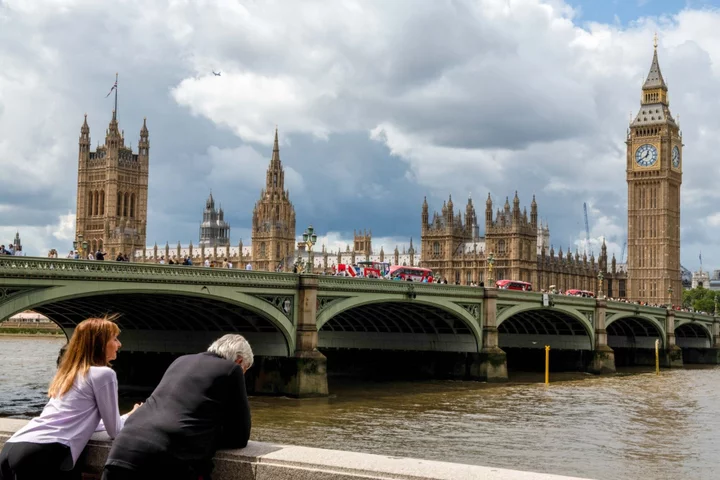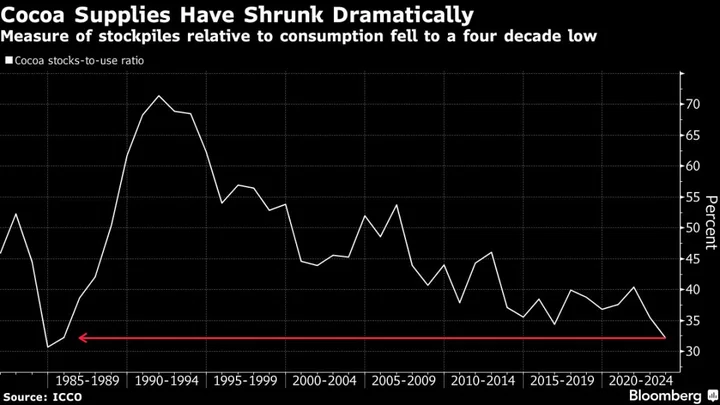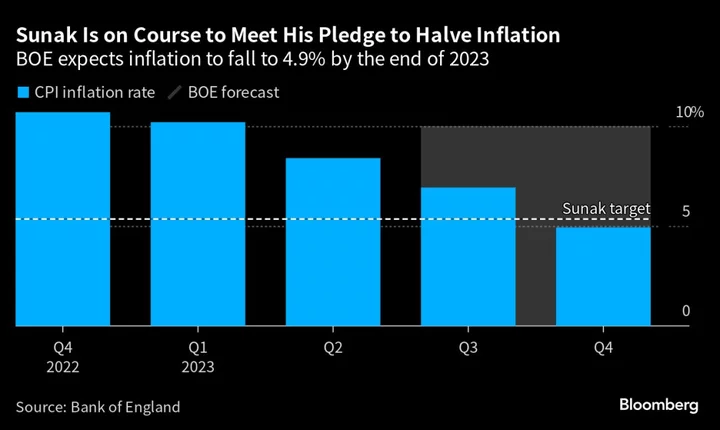UK government borrowing came in below official forecasts in the first four months of the fiscal year, providing potential room for Chancellor Jeremy Hunt to cut taxes.
The budget deficit between April and July was £56.6 billion ($72.3 billion), the Office for National Statistics said Tuesday. That’s £11.3 billion less than the Office for Budget Responsibility forecast in March.
The deficit in July alone was £4.3 billion, below the the £5 billion median forecast in a Bloomberg survey but up from £1.1 billion a year earlier. The ONS also revised figures from earlier months, showing the total size of the Treasury’s debt never exceeded the size of the economy, a threshold that it previously said was crossed.
July is one of the better months for the public finances, as income taxes pour in before a month-end deadline for self-employed workers.
The undershoot so far in 2023-24 will be welcomed by Prime Minister Rishi Sunak’s Conservative Party, which is trailing as much as 20 points behind the Labour opposition in opinion polls ahead of a general election that’s widely expected to be held next year.
Treasury coffers are benefitting from a tight labor market, which is boosting taxes from wages, and the end of subsidies for household energy bills. These factors are helping to offset a surge in debt costs caused by higher inflation and interest rates.
Hunt has signaled there will be no tax cuts in the Autumn Statement later this year. The scope for giveaways may also be limited, given the the government has little if any room against its rule that debt should be falling as a share of GDP in five years.
Fitch’s shock decision the strip the US government of its AAA status has reignited questions about the UK’s credit rating.
--With assistance from Joel Rinneby.









